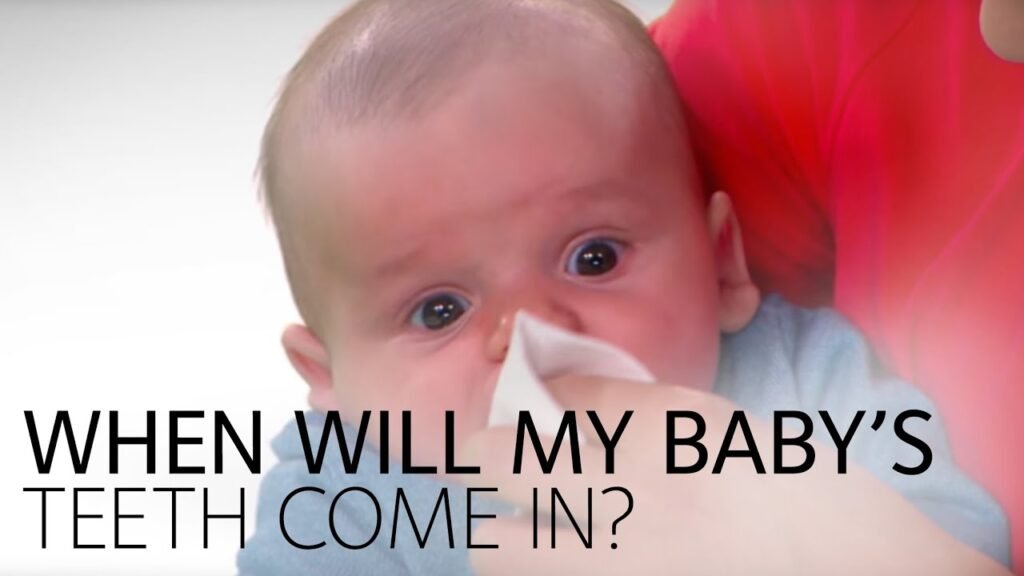Decoding Baby Teeth: A Guide to Infant Dental Care

Did you know that caring for your infant's teeth is just as important as caring for your own? Good dental hygiene habits should start early, even before the first tooth makes an appearance. Taking care of your baby's oral health can help prevent future dental problems and set the stage for a lifetime of healthy teeth. In this article, we'll explore the importance of dental care for infants, including when to start brushing, what to expect as their teeth begin to emerge, and how to establish good oral hygiene habits from a young age.
At what age do baby teeth appear?
Baby teeth typically start to appear between 6 and 12 months of age, with some babies not getting their first tooth until after their first birthday. The variability in timing is completely normal, so there's no need to worry if your little one's pearly whites take their time making an appearance.
How many teeth does a 1 year old typically have?
By the age of one, most children should have between two and four teeth. However, it's important to remember that every child develops at their own pace. Generally, by the age of two and a half, children should have all 20 of their baby teeth. If you have concerns about your child's dental development, it's always best to consult with a pediatric dentist for personalized guidance and advice.
When do babies typically get their teeth?
Wondering when your baby's teeth will start coming in? On average, babies will begin getting their teeth around 6 to 12 months, but don't stress if it's a bit earlier or later. However, if your little one hasn't sprouted any teeth by 18 months, it might be a good idea to schedule a visit to the pediatric dentist for a check-up.
Nurturing Your Baby's Smile: Essential Dental Care Tips
As a parent, it is crucial to prioritize your baby's dental health from an early age. Establishing good oral hygiene habits early on can set the foundation for a lifetime of healthy smiles. Remember to gently clean your baby's gums with a soft cloth or infant toothbrush after feedings to remove bacteria and prevent gum disease.
Once your baby's first tooth appears, it is time to introduce toothpaste and a small, soft-bristled toothbrush into their oral care routine. Use a rice-sized amount of fluoride toothpaste to prevent cavities and gently brush their teeth twice a day. Encouraging regular dental check-ups with a pediatric dentist can help monitor your baby's oral development and catch any issues early on.
In addition to daily brushing and regular dental visits, it is important to promote a balanced diet and limit sugary foods and drinks that can harm your baby's teeth. By fostering healthy habits and prioritizing dental care, you can help nurture your baby's smile and set them on the path to a lifetime of good oral health.
Understanding the Importance of Baby Teeth
Baby teeth are often overlooked, but they play a crucial role in a child's development. These tiny teeth not only help children speak and chew properly, but they also guide the permanent teeth into place. Understanding the importance of baby teeth is essential for parents to ensure their child's overall dental health and well-being. By taking care of baby teeth, parents can set the foundation for a lifetime of good oral hygiene habits and prevent potential dental issues in the future.
It is important for parents to recognize the significance of baby teeth and prioritize their care from an early age. Baby teeth are more than just placeholders for permanent teeth; they contribute to a child's overall health and development. By understanding the importance of baby teeth, parents can ensure that their child's oral health is properly maintained, setting them up for a lifetime of healthy smiles.
Proactive Steps for Healthy Infant Dental Development
Ensuring healthy dental development in infants begins with establishing good oral hygiene habits early on. Parents can start by gently wiping their baby's gums with a soft, damp cloth after feedings. As soon as the first tooth appears, it's important to introduce a soft-bristled toothbrush and begin brushing twice daily with a small amount of fluoride toothpaste. By taking these proactive steps, parents can help prevent tooth decay and promote strong, healthy teeth as their child grows.
In addition to daily oral care, regular dental check-ups are crucial for monitoring infant dental development. Dentists can provide valuable guidance on proper brushing techniques, fluoride intake, and dietary choices that promote oral health. Early detection of any issues, such as cavities or alignment problems, can lead to timely interventions and prevent more serious complications down the road. By working closely with dental professionals and staying proactive in their child's oral care routine, parents can set the foundation for a lifetime of healthy smiles.
In summary, proper dental care for infants is essential in establishing good oral hygiene habits early on. By introducing gentle brushing techniques, monitoring sugar intake, and scheduling regular dental check-ups, parents can help ensure their child's teeth develop healthily and prevent potential issues in the future. Remember, a healthy smile starts with good habits from a young age.